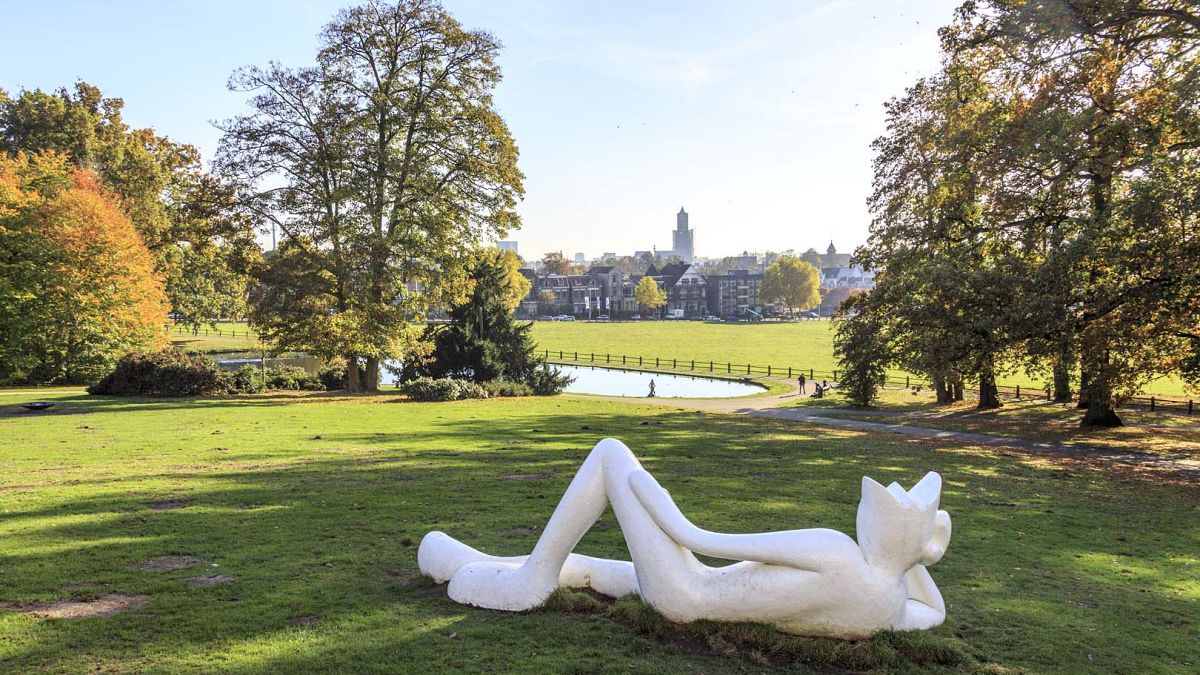The city of Arnhem has published a strategy to combat the effects of global warming, which included reducing asphalt by 10 per cent, among other measures.
The Dutch city of Arnhem revealed its plan to combat the effects of climate change this week, aiming to reduce asphalt by 10 per cent in the city and add green spaces.
The city plans to replace asphalt by adding plants and greenery so that rainwater can be absorbed directly into the ground.
This action would contribute to the city's aim of preventing 90 per cent of rainwater from moving from the public space into the sewer.
The climate adaptation plan has been presented by the municipality to the city council in an effort to cope with increasing temperatures, drought and heavy rain showers.
The city council is set to vote after the summer on the proposed strategy.
"Arnhem is at the forefront when it comes to climate adaptation," said the city's vice mayor Cathelijne Bouwkamp in a statement.
"King Willem-Alexander's visit last year to a number of appealing projects in our city was a good example of this. We would like to maintain that lead."
To combat high temperatures, the city will create cool areas and shaded trails.
In recent years, the city said in a press release, greenery has been added to 300 places in the city.
The city also said that €450,000 would be available in subsidies to residents or entrepreneurs who have an idea to make the city more resistant to heat, extreme flooding or drought over the next three years.
The Climate Adaptation Strategy that spans the next decade was drawn up with partners in the city.
"As a city, we cannot do this alone; most of the city’s territory is not public space but private property. We will work together with organisations, corporations and schools," Bouwkamp told Euronews.
Last year marked Europe's warmest year on record and a recent Copernicus report said that the continent was heating up faster than the global average.
